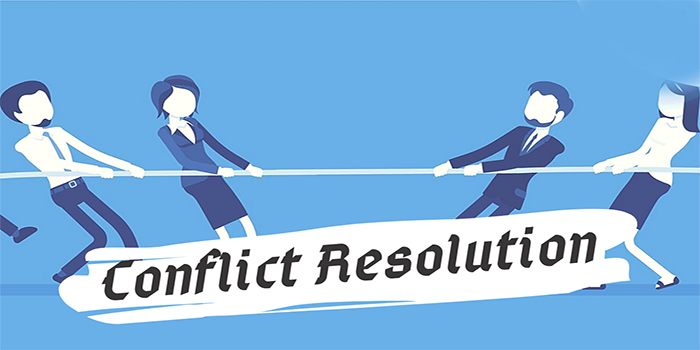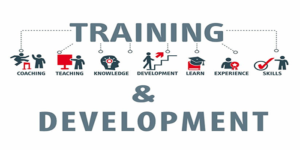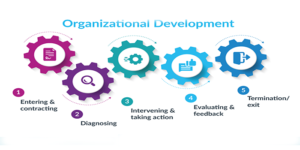
Conflict resolution is the process of resolving disputes or disagreements. This process typically involves identifying the source of the conflict, engaging in dialogue, and taking steps to resolve the issue. Conflict resolution can take place at the individual, group, or organizational level and can involve a variety of methods such as negotiation, mediation, and arbitration. Proper conflict resolution can help to improve relationships, build trust, and restore harmony in a workplace.
Conflict Resolution Training Course
This Conflict Resolution Training Course is designed to provide participants with an in–depth understanding of the dynamics of conflict and the strategies and techniques needed to effectively manage and resolve conflicts. The course focuses on the practical application of skills to develop appropriate conflict resolution approaches as well as the development of effective communication strategies. This course is suitable for any individual or team that wants to develop their ability to effectively manage and resolve conflicts in both their professional and personal lives. Course Objectives At the end of this course, participants will be able to:
• Understand the dynamics of conflict and explore the root causes of conflict.
• Develop effective communication strategies to reduce conflict.
• Develop conflict resolution strategies and techniques.
• Apply appropriate conflict resolution approaches.
• Create an action plan to manage and resolve conflicts.
Course Outline
• Introduction to Conflict Resolution
• Understanding Conflict
• Communication Strategies
• Conflict Resolution Strategies
• Conflict Resolution Approaches
• Action Planning for Conflict Resolution
• Evaluating Conflict Resolution Efforts
What are the Courses of Conflict Resolution?
1. Negotiation
2. Mediation
3. Collaborative Problem Solving
4. Conflict Coaching
5. Interest–Based Negotiations
6. Arbitration
7. Restorative Justice
8. Facilitation
9. Group Facilitation
10. Conflict Mapping and Analysis
11. Transformative Mediation
12. Transactional Analysis (TA)
13. Emotional Intelligence (EI)
14. Reframing
15. Psychodrama
16. Family Systems Therapy
17. Narrative Therapy
18. Psychoanalysis
19. Cognitive Behavioral Therapy (CBT)
20. Structural Therapy
21. Systemic Therapy
22. Structured Dialogue
23. Third Party Neutral Conflict Resolution
24. Conflict Resolution Education
25. Online Dispute Resolution (ODR)
How do Become a Conflict Resolution Specialist?
1. Obtain a bachelor‘s degree in a relevant field such as psychology, conflict resolution, mediation, or business.
2. Take additional courses in communication theory, conflict theory, and negotiation theory.
3. Consider completing an internship or practicum in conflict resolution.
4. Pursue a master‘s degree in a related field, such as business administration with a concentration in dispute resolution or mediation.
5. Consider becoming certified as a mediator or dispute resolution professional.
6. Get involved in relevant professional organizations, such as the Association for Conflict Resolution.
7. Participate in research projects related to conflict resolution.
8. Pursue job opportunities in the field of conflict resolution.
What are the Steps to Conflict Resolution?
1. Identify the source of the conflict: The first step in conflict resolution is to identify the cause of the conflict. This could be due to a disagreement on values, goals, resources, or even communication styles.
2. Establish a dialogue: Once the underlying cause of the conflict has been identified, it’s important to create an open dialogue between the parties involved in the conflict.
3. Listen actively: When having a conversation, it’s important to actively listen to each other and not just hear what the other person is saying. This means really listening and understanding what the other person is trying to say.
4. Identify common ground: Once both parties have had the opportunity to express their perspectives, it’s important to identify common ground between the two and find a mutually beneficial solution.
5. Create a plan of action: Once common ground has been established, both parties should create a plan of action that outlines how the conflict will be resolved.
6. Follow through: The final step in conflict resolution is following through on the plan of action. This means making sure that both parties are following the plan and making adjustments if needed.
Best University for Conflict Resolution Training Course in India
1. Tata Institute of Social Sciences, Mumbai
2. Jamia Millia Islamia, New Delhi
3. Indian Institute of Management, Ahmedabad
4. Symbiosis International University, Pune
5. Amity University, Delhi NCR
6. Jindal Global Law School, Sonipat
7. National Law University, Delhi
8. International Centre for Conflict Resolution, New Delhi
9. Indian Institute of Technology, Delhi
10. National Institute of Advanced Studies, Bangalore





